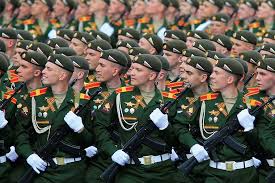As the US presidential race approaches its climax and European officials ponder the implications of the UK’s Brexit vote, public discussion of security affairs is largely confined to strategies for combating international terrorism. Both Hillary Clinton and Donald Trump are trying to persuade voters of their superior qualifications to lead this battle, while European leaders scramble to bolster their countries’ defences against homegrown extremists. But though talk of terrorism fills the news media and the political space, it is secondary in the conversations of generals, admirals and defence ministers: it’s not low-level conflict that commands their attention but rather what they call ‘big wars’ — large-scale, high-level conflict with great-power adversaries like Russia and China. Such major conflicts, long considered most unlikely, are now deemed ‘plausible’ by western military strategists, who claim that urgent steps are needed to deter and, if necessary, prevail in such engagements.
This development, overlooked by the media, has serious consequences, starting with heightened tension between Russia and the West, each eyeing the other in the expectation of a confrontation. More worrying is the fact that many politicians believe that war is not only possible, but may break out at any moment — a view that historically has tended to precipitate military responses where diplomatic solutions might have been possible.

